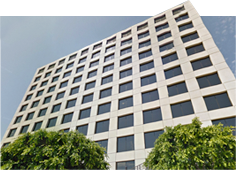I-Squared Act of 2015 Introduces H-1B, H-4, and other Employment-Based Immigration Reforms
It is only a matter of time until regulations within the employment and entrepreneurship-based components of U.S. immigration laws are realigned to make more sense with the reality facing businesses and highly skilled workers.
For example, shortening the wait for highly skilled Indian nationals in the EB-2 category (currently over ten years); allowing work authorization for the spouses of workers stuck in a long priority date backlog; and increasing the annual H-1B cap are measures that seem to be gaining momentum amongst interest groups and lawmakers in recent years. Within President Obama’s 2014 Executive Action announcement, these and other modernizations to our current system were mentioned.
Recently, the Senate took a step of its own in addressing the issue. On January 13, 2015, the Immigration Innovation (“I-Squared”) Act of 2015 was introduced by a bipartisan group of Senators. If enacted, the legislation would go a long way towards reforming the employment-based system, including significantly raising the H-1B cap, and shortening the timeframe for beneficiaries waiting in the EB-priority date backlog. The I-Squared Act of 2015 would also raise the per-country cap for family-based immigrant categories.
By way of summary, the proposals within the I-Squared Act include the following provisions for Employment-Based Adjustment of Status (Green Card) Applicants, and temporary visa holders, as follows:
- Eliminate per-country limits for employment-based Green Cards;
- Activate the recapture of Green Card immigration numbers that went unused in previous years;
- Allow US STEM advance degree holders, dependents of employment-based adjustment applicants, and certain professors, researchers and persons of Extraordinary Ability to be exempted from the Green Card limitation;
- Allow dual intent for foreign students at U.S. universities;
- Raise the general H-1B cap to 115,000 (from 65,000);
- Remove the annual Master’s Cap limit (currently set at 20,000 per year);
- Grant employment documents to the spouses of H-1B status holders (H-4); and
- Allow certain foreign workers mobility (a “grace period”) within which they can port to another job without fear of a status violation (applies to E, H, L, P, and O status).
Passage of the I-Squared act would boost American economic growth, output and create jobs for Americans. According to one study by economists at Princeton University, a 1-percentage-point uptick in college-educated immigrants as a share of the general population resulted in an increase in patents per capita by 9 percent (to 18%). Economists from the University of Michigan and Harvard found that a 10 percent increase in the number of workers holding H-1B status in a city boosts the entire city’s patent output by almost 1 percent, a significant increase given the small numbers of H-1B workers in proportion to the overall workforce.
The I-Squared bill would remove many of the artificial barriers to obtaining temporary work visas and permanent residence for future generations of entrepreneurs and leaders in science and technology. Providing an immigration benefit (rather than a deterrent) for these innovators will, in turn, create more jobs for US workers.






